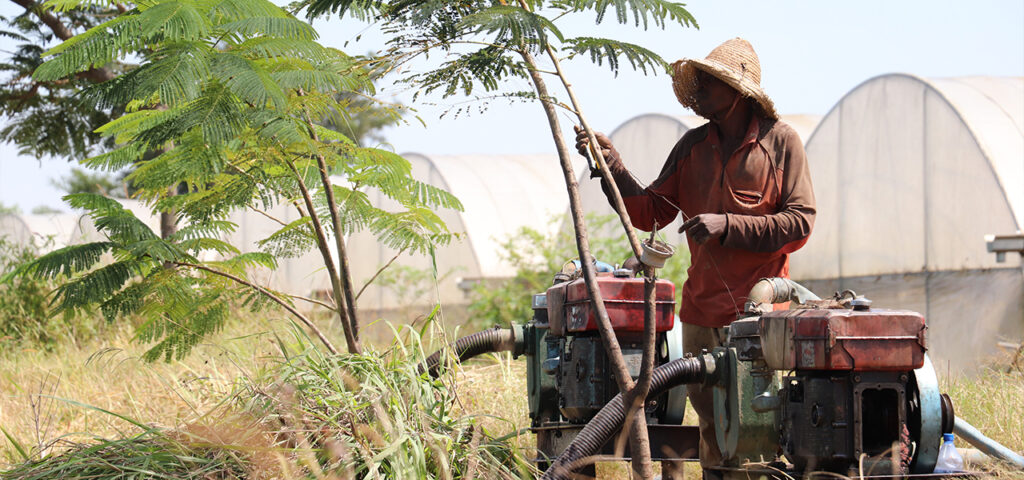Economic Resilience
We work to drive sustainable socio-economic development for all mining communities across Central Africa – building thriving and diverse local economies.
Despite its enormous mineral wealth, the DRC ranks second last on the Economic Complexity Index, which describes how diversified a national economy is.
With the country heavily relying on mining as its biggest source of revenue, large swaths of the population experience difficulties finding employment and end up living in absolute poverty. Local political leadership is actively promoting investment in the diversification of their economy. Experts agree, creating alternative livelihood opportunities has the potential of uplifting local communities and making the economy more resilient to price fluctuations on the international metals market.

Making artisanal mining a dignified choice
In the absence of viable alternatives, artisanal mining becomes one of the only options for many of the people living in mining communities in the Lualaba Province to make a decent living. Artisanal miners often earn more than their peers in agriculture, vendors or the service industry. Being paid cash in hand on a weekly, if not daily basis, poses a clear advantage over activities such as subsistence farming, as there is guaranteed offtake for cobalt ore at one of the many informal trading houses that exist, and a prospect of ‘quick cash’ in comparison to profits from agricultural cycles.
As we work with local cooperatives to professionalise the way artisanal mines are operated, committed to making artisanal mining a dignified livelihood, we also want to create and promote alternatives outside the mines, so that mine work becomes a choice and is no longer the only economically viable, accessible option.
The FCA aims to provide artisanal miners with the choice to either stay in artisanal mining but working under better conditions, or leave the sector to follow an alternative profession through one of FCA’s economic diversification projects.

Our plans to increase household incomes
Understanding the importance of building financial literacy and establishing a culture of saving money and investing at a household level, the FCA sets out to support local initiatives promoting business and financial literacy, as well as group saving schemes.
Connected to its financial literacy and saving groups projects, the FCA helps participants to identify opportunities for local entrepreneurship through the provision of relevant training, business mentorship and access to financial services and loans such as micro-financing schemes for the self-employed.
Along with its rich mineral resources, the DRC has vast tracts of unused rich and fertile soil with immense potential for sustainable agriculture. Unfortunately due to the emphasis placed on mining, this has so far been largely overlooked. Instead, food products are often imported from neighbouring countries like Zambia, rendering Lualaba’s population vulnerable to sudden price increases or supply shortages. We seek to change this by working with local agricultural groups and businesses to train people on cultivation techniques to plant a new industry, maximise output, and push the way towards food independence.